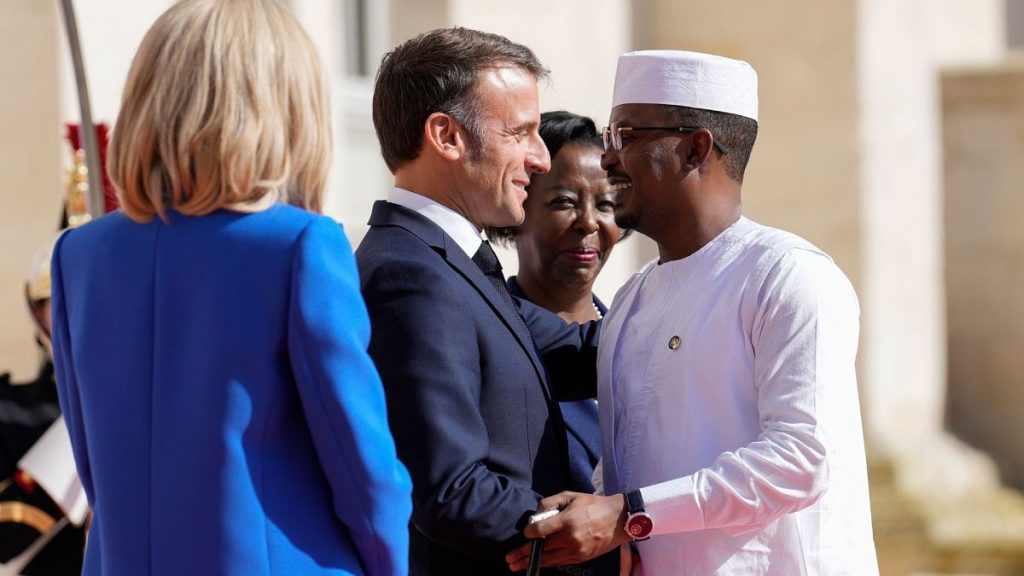Chad’s recent decision to terminate its defense cooperation agreement with France marks a significant shift in the nation’s geopolitical landscape, reflecting a rise in anti-French sentiment within Chad and across the Sahel region. The move is described by the Chadian government as a step toward reclaiming sovereignty and reassessing international relations, distancing itself from its former colonial ruler more than sixty years after gaining independence. Abderaman Koulamallah, spokesperson for the Foreign Ministry, characterized the decision as a historic turning point. While the government emphasizes a desire to reshape alliances based on national interests, it also indicates that this shift will not entirely sever historical ties with France, as both nations agree to maintain mutual relations in areas of shared interest.
Chad’s interim president, Mahamet Deby Itno, who took power in 2021 following his father’s death in combat, has voiced skepticism toward French President Emmanuel Macron, further straining the relationship. This decision comes at a time when Chad was one of the last bastions of French military presence in the Sahel, with around 1,000 French troops stationed in the country. However, in recent years, France’s military support has increasingly faced challenges and declines, with neighboring countries like Niger, Mali, and Burkina Faso expelling French troops amid coups led by military leaders who are turning towards alternative partnerships, notably with Russia.
The influence of Russian mercenaries has already made significant inroads across the Sahel and sub-Saharan Africa, providing security services in exchange for access to valuable resources. Ulf Laisseing, head of the Sahel programme at the Konrad Adenauer Foundation, noted that Deby’s motives are driven by a desire to diversify security relationships and a growing lack of trust toward Macron amid rising anti-French sentiments. Deby is fully aware that exclusive reliance on any single foreign partner is not feasible given the ongoing domestic challenges, including protests that erupted over the government’s decision to prolong the political transition period last year.
As the exact timeline for the withdrawal of French troops remains uncertain, analysts suggest that this strategic pivot could create opportunities for other nations such as Russia, Turkey, and the UAE to deepen their engagements with Chad. This shift is also occurring within a broader context of growing tensions regarding France’s historical and contemporary influence in Africa. The acknowledgment of France’s colonial past has become increasingly critical, and Macron recently took a step in this direction by recognizing the Thiaroye massacre of West African soldiers by the French army in 1944 in Senegal.
Macron publicly acknowledged the tragic killing of up to 400 unarmed Senegalese soldiers during a dispute regarding unpaid wages, describing the event in a letter and detailing the ramifications of that day. Senegalese President Bassirou Diomaye Faye welcomed Macron’s recognition of the incident as a necessary step towards reconciliation and closure. This acknowledgment is indicative of the complexities surrounding historical grievances and the contemporary relationships between former colonies and colonial powers, as nations like Chad grapple with their identities and alliances within a rapidly changing global landscape.
The culmination of these factors—growing anti-French sentiment in Chad and the Sahel, the decline of French military influence, the rise of alternative global power dynamics, as well as the need for historical reckoning—creates a complex environment for Chad as it seeks to redefine its international relationships. The decision to terminate the defense cooperation agreement, while steeped in historical context, signals Chad’s intent to assert its sovereignty and pursue security partnerships that reflect its emerging national priorities. As the implications of this decision continue to unfold, the region may witness a shift in alliances and the regional balance of power, underscoring the significance of these developments in contemporary geopolitics.














